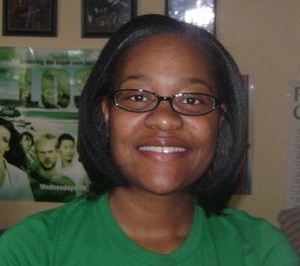
By Bill Taverner
I’ve never been one to want to get arrested. Sure, I’ve spoken my mind when it comes to sexuality education. I’ve written opinion pieces, and I’ve been fortunate to speak to Congress twice, each time extolling the virtues of comprehensive sex ed, while enumerating the problems with abstinence-only-until-marriage education. But, no, I’ve never picketed very much, and I can honestly say that I’ve never had even the tiniest urge to spend a night in the slammer.
But I’m ready to break the law now.
Just get me on a plane to Juneau County, Wisconsin. That is where the district attorney has declared sex ed against the law. Yes, I’ll say it again: in Juneau County, teachers can be arrested for teaching sex ed. Never heard of Juneau? Well, the county’s slogan is “Worth a closer look!” So, yes, let’s take a closer look.
Last month, District Attorney Scott Southworth sent a letter to the school districts in Juneau County. He warned teachers that teaching about how to use a condom or birth control is criminal, and could result in their arrest and prosecution to the tune of a $10,000 fine and nine months behind bars. Folks, we might laugh this letter off if it went out to the area pre-schools, but high school health teachers were the target of his witch hunt. This is what the teachers get for doing a good job at helping to prevent teen pregnancy. Wisconsin has the seventh lowest rate of teen pregnancy in the nation. According to the National Campaign to Prevent Teen Pregnancy, their rate has dropped substantially (by 37%) during the past two decades. No doubt thanks to teachers who were responsibly teaching about contraception. Still, the Centers for Disease Control and Prevention tells us that just about half of high school students have had sexual intercourse. The percentage predictably rises with grade level to the tune of two-thirds by graduation day and substantially more by the end of the first year in college. Further, about one-in-four teens has a sexually transmitted infection.
I’ve been to Wisconsin a number of times, where I’ve had good beer and even better cheese. The last time I gave a workshop in Milwaukee, teachers came from all over the state, and I trained them to help students recognize the problems that often happen when teens date adults. These were bright, thoughtful teachers who were deeply concerned about the health and well-being of their students, and the scope of their concern extended far beyond discussions of condoms and contraception.
I had to applaud them for their successes in keeping teen pregnancy and birth rates so low, while expanding their education focus to teaching about healthy and unhealthy relationships.
So why is the district attorney now trying to undo what appears to be relatively successful teen pregnancy interventions, especially compared to the United States efforts overall in recent years?
The website for Juneau County says that it “offers possibilities to those who are pursuing a better quality of life.” Was the D.A. consulted on the county’s promotional language? Because I can’t help but wonder if that vision includes teens. I would hope that the county would value keeping teen pregnancy rates low as a way to help young people pursue a better quality of life.
So here’s my open invitation to my friends in Juneau County who are trying so hard to prevent teen pregnancy and sexually transmitted infections: I will be delighted to visit, hike on your gorgeous land and water trails, teach sex ed at any school that will have me, and when I’m done, Mr. Southworth can slap the handcuffs on me himself. No doubt, as the website says, “there’s an adventure awaiting” in Juneau County. Let’s just keep away from the life-limiting kind of adventures that come with teen pregnancy and STDs.





